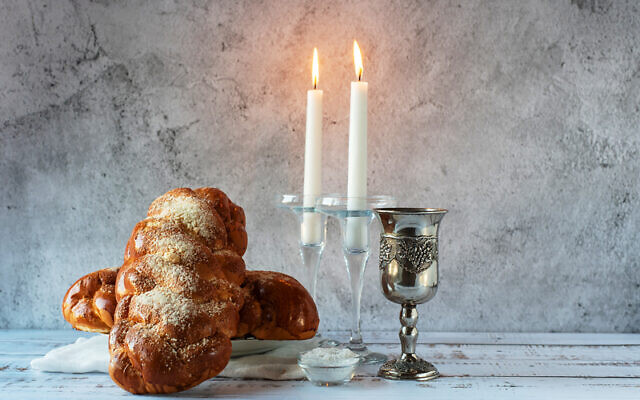Overcoming challenges and uncertainty
Shabbat Shalom to all our readers.
How do you navigate difficult challenges and uncertainty? The past two years have been particularly challenging with perhaps the most uncertain period in our lifetime.
In my family’s case, during the last few months, we moved houses and changed shules, communities and employment. All these undertakings can be great contributors to stress. Yet we have not only managed, we have thank God thrived. The secret to our successful transition may not be surprising.
Throughout all the challenges and uncertainty, my wife Lifshy, reassured me and our children that everything would be OK. Every step of the way she would remind us that God has a plan and we need to trust in Him.
This week’s parasha, Beshalach, describes events following the Exodus from Egypt. The Talmud (Sotah 11b) tells us: “In the merit of the righteous women of that generation, our forefathers were redeemed from Egypt.”
In the midst of the torturous and bitter slavery in Egypt, the men had all but given up hope of survival. They were ready to throw in the towel. The Talmud tells us that the wives would reassure their husbands not to lose hope and that they wouldn’t be slaves forever.
The men had no desire to procreate, not wanting their children to be born as slaves. The women continued to believe in a better life. They never gave up hope of being redeemed. The women approached their husbands in the fields to ensure another generation and the continuity of our people.
After the Red Sea split, the Jewish people sang Shirat Hayam, a song expressing gratitude and praise to God. However, only the women’s song was accompanied by instruments: “And all the women went forth after her (Miriam) with tambourines and with dances.” (Shemot 15:20).
When the Israelites left Egypt, they left in such a hurry, they didn’t have enough time to let their dough rise. So where did the women have time to arrange tambourines? Rashi explains that the special faith of the women inspired them to leave Egypt with musical instruments. The kabbalists teach us that women are more spiritually attuned and more receptive to ideas of faith than men.
Ten years ago my wife and I moved to Hong Kong to open a Chabad House in Discovery Bay. Our first event was a Chanukah Menorah lighting in the Discovery Bay Plaza. The plan was to set up a giant menorah and to hire a magician to perform. Arrangements were made with the City Management who were eager to add Chanukah to their calendar of events.
As I wondered what else we could add to promote the event, I contacted the fire department and asked them to bring a fire engine and do a fire safety demonstration. What could be a bigger attraction to young children, I thought.
A week before Chanukah we received a response. The fire department asked if we had permits to light the candles in a public place. I assured them that I was happy to apply but was advised that it takes six weeks to receive approval.
I was absolutely devastated. We had been planning this event for months, the City Management had reassured us that all was in order and now a week prior we were stymied by bureaucracy. I worried that without Chanukah candles our first public event in Discovery Bay would be a disaster.
My dear wife reassured me straight away. We are not here on our own. We are here to serve our community and God will ensure our success.
A few days later an unexpected call from the fire department advised us that the lighting could go ahead and the fire brigade would attend. Rest assured the event was a huge success and for the following years a fire permit was obtained months in advance.
My wife’s instinct to trust in God in the tradition of the Jewish women in Egypt, has continuously been the source of faith to keep us focused.
Mendy Ajzenszmidt is rabbi of the South Caulfield Hebrew Congregation


comments